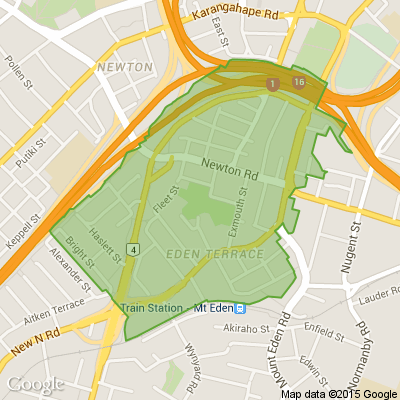Yoga for our "golden oldies"
Kia ora koutou,
Happiest of days to you all. Hope y'all are well.
Posting this here for those that of you that err toward the golden years, or maybe you know a "golden oldie" that might like to join...?
Yoga for the older bodz and budz. 🙂 Influenced by somatics, these mindful movement and breath practices stimulate flow within in the body, regulate the nervous system, aid in one's balance and mobility.
Plus, they're a good time. I make these classes fun and playful, and it's also an opportunity for "old friends" to make "new" friends! 🥳
Whether one is a "golden-oldie yogi" or a "golden-novice" curious to start their yogic journey (for it's never too late to 😉) these classes will suit all levels.
Thursday mornings 9am
@ The Old Folks Association
Gundry St (just off K' Road near Ponsonby
Newton
$15 casual, $70 x5 pass, $110 x10 pass
If coming to a class is not favourable, I also do one-on-one/private sessions. Happy to discuss what your needs are. Likewise, if finances are tight, please reach out.
To book and for any questions etc, please contact:
Renée Sheridan
+64 274 580 355
renee.sheridan@gmail.com
Yay, I look forward to "flowing gold" with y'all 🤩😉🧘🧘♀️🧘♂️
Arohanui,
Renée xx
#yogaforseniors #yogaforoldies #yoga #OldFolksAss #renaissanceyoga #renaissanceyogatelier #senioryoga #yogaforold

Poll: Should all neighbours have to contribute to improvements?
An Auckland court has ruled a woman doesn’t have to contribute towards the cost of fixing a driveway she shares with 10 neighbours.
When thinking about fences, driveways or tree felling, for example, do you think all neighbours should have to pay if the improvements directly benefit them?

-
82.5% Yes
-
14.7% No
-
2.8% Other - I'll share below
Live Q&A: Garden maintenance with Crewcut
This Wednesday, we're having another Neighbourly Q&A session. This time with John Bracewell from Crewcut.
John Bracewell, former Black Caps coach turned Franchisee Development Manager and currently the face of Crewcut’s #Movember campaign, knows a thing or two about keeping the grass looking sharp—whether it’s on a cricket pitch or in your backyard!
As a seasoned Crewcut franchisee, John is excited to answer your lawn and gardening questions. After years of perfecting the greens on the field, he's ready to share tips on how to knock your garden out of the park. Let's just say he’s as passionate about lush lawns as he is about a good game of cricket!
John is happy to answer questions about lawn mowing, tree/hedge trimming, tidying your garden, ride on mowing, you name it! He'll be online on Wednesday, 27th of November to answer them all.
Share your question below now ⬇️

Breaking the Cycle of Taha Tinana (Physical Cravings) - Day 11
Breaking the Cycle of Taha Tinana (Physical Cravings)
In te ao Māori (the Māori worldview), humans are seen as beings of both taha tinana (the physical realm) and taha wairua (the spiritual realm). A balance between these aspects is essential for well-being. When we focus solely on satisfying our physical cravings—kai (food), moe (rest), hiahia (desires), and mataku (fear)—we risk losing our connection to wairuatanga (spirituality) and mauri (life force).
The Story of Tūmaro and the Sacred Rākau (Tree)
Once, a man named Tūmaro roamed the vast ngahere (forest) in search of a better life. He was tired, hungry, and filled with uncertainty about his future. As the sun blazed above him, he cried out to the atua (gods), seeking their guidance.
Hearing his plea, Tāne Mahuta, the atua of the forests, sent him a gift: a rākau manaaki (sacred tree) with the power to grant wishes. Exhausted, Tūmaro lay beneath the tree, and his first wish was for moe (rest). The tree immediately granted his desire, providing a cool shade, soft moss, and a gentle breeze that lulled him into a deep sleep.
When he awoke, his puku (stomach) growled with hunger. Without thinking, he wished for kai, and the tree responded with an abundance of delicious hākari (feast). He devoured it greedily, thanking no one for the gift.
Feeling satisfied, his mind wandered to hiahia (desire). Tūmaro wished for a companion to bring him pleasure and ease his loneliness. The tree granted this wish too, and soon he became absorbed in his desires, forgetting his original prayer to the atua.
As the day turned to night, Tūmaro became aware of the darkening ngahere and the distant calls of kēhua (spirits). Fear crept into his mind, and he thought, “What if a wild beast comes to attack me?” As soon as the thought arose, the sacred tree granted it—a kurī ngaro (ferocious beast) appeared and devoured him.
---
The Lesson of Tūmaro
The kaumātua (elders) who shared this story taught that Tūmaro’s downfall was not caused by the rākau manaaki but by his own lack of balance. By giving in entirely to taha tinana (physical cravings) without nurturing his taha wairua (spiritual self), he created a cycle that led to his destruction.
---
Values Reflected in the Story
1. Whanaungatanga (Connection): Tūmaro failed to acknowledge the atua and his connection to the world around him. Gratitude and mindfulness strengthen our relationships with others and with te taiao (the environment).
2. Wairuatanga (Spirituality): The story reminds us that taha wairua must be nurtured alongside taha tinana. Practices such as karakia (prayers) and aroha ki te Atua (love for the gods) maintain spiritual balance.
3. Manaakitanga (Respect and Care): Instead of respecting the sacred gift of the tree, Tūmaro became consumed by his personal desires, neglecting the importance of moderation and care.
4. Kaitiakitanga (Guardianship): The sacred tree symbolises the resources of Papatūānuku (Earth Mother), which must be used responsibly, with gratitude and care.
---
Moral of the Story
The story of Tūmaro teaches us that balance is the key to a fulfilling life. Pursuing the needs of taha tinana without acknowledging taha wairua leads to imbalance and harm. To thrive, we must practice gratitude, moderation, and mindfulness. As values remind us, nurturing our spiritual connection ensures harmony within ourselves, our whānau, and the wider world.
In Tūmaro’s story, the sacred rākau served not only as a gift but also as a reminder of the power of our intentions and the need to honor both physical and spiritual well-being.






 Loading…
Loading…














